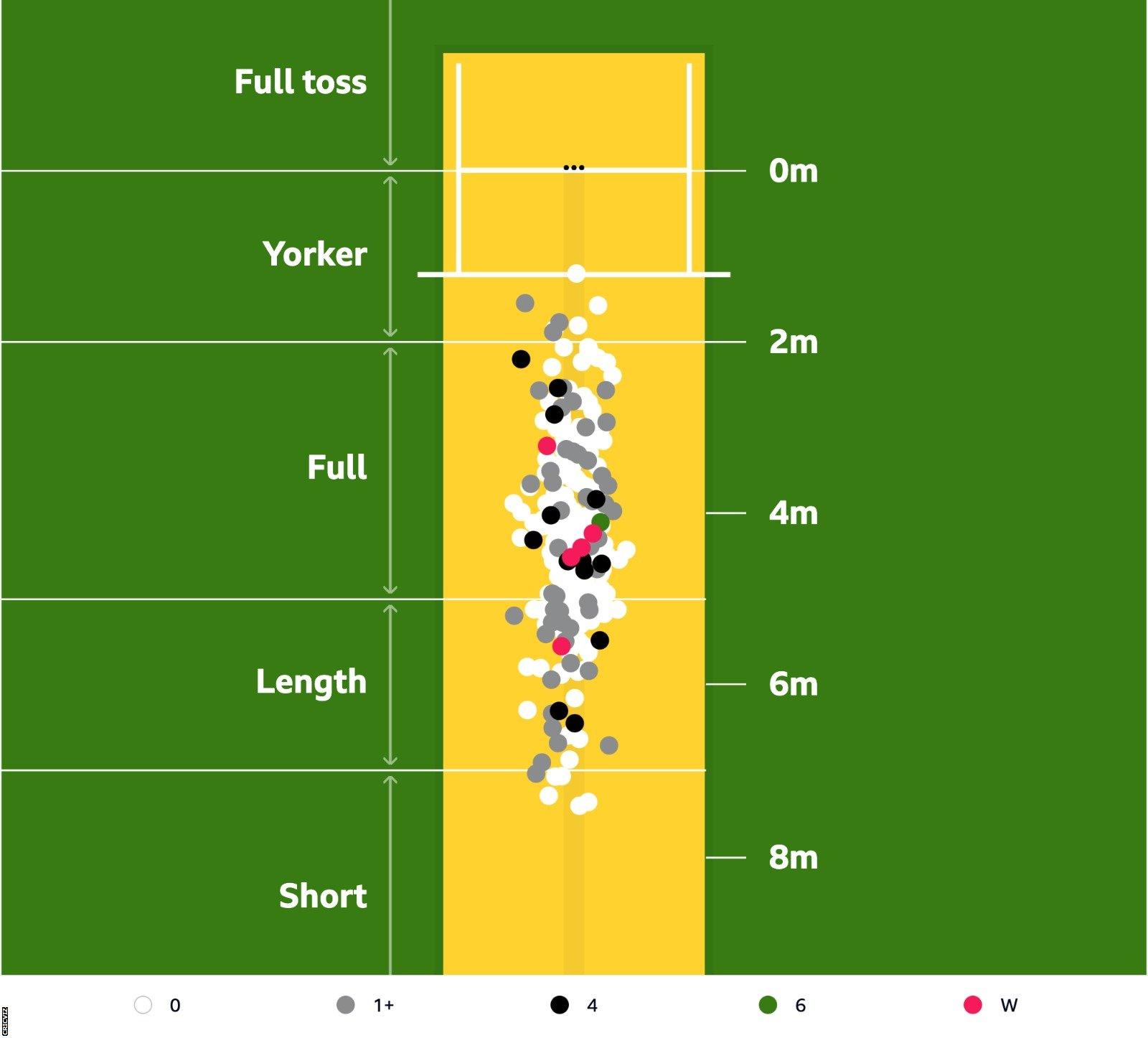The Ashes 2023: England must protect their 'once-in-a-generation' bowler Sophie Ecclestone
- Published
Ecclestone takes five wickets against Australia
When Sophie Ecclestone gets to work there are few better sights in cricket.
Sunglasses on, two steps, a twirl of the arms followed by the whip of her long ponytail.
And the wicket celebration that almost feels inevitable, charging towards square leg with her ecstatic teammates in pursuit.
She is the one her captain Heather Knight turns to in times of need, the one the batters do not want to face and the one the fans want to see.
But with greatness comes expectation.
During Australia's first innings in the one-off Ashes Test match at Trent Bridge, the left-arm spinner took 5-129 from a barely believable 46.2 overs - a figure that would be considered a lot in men's cricket, let alone considering how little multi-day cricket the women play.
Ecclestone bowled 64 overs during the Test match against India at Bristol in 2021 and subsequently struggled with shoulder soreness, but looks set to eclipse that total with three days' play remaining in Nottingham.
Beaumont leads England fightback
"Sophie Ecclestone is a once-in-a-generation bowler," said former England bowler Katherine Sciver-Brunt.
"I feel extremely confident in saying that she will be England's greatest spinner of all-time. But what comes with being the best also equals being high in demand, and hopefully England won't have to lean on her as much as they have here for the rest of the series.
"They've got to keep her in good health, that is the number one priority - not only for the rest of the Ashes, but the rest of her career - she's still only 24."
Ecclestone bowled 37.2% of England's overs - the average in women's cricket is 26.5% - as Australia scored 473, with number eight Annabel Sutherland's maiden Test century halting the hosts' progress.
England finished the day 218-2, 255 behind Australia but with Tammy Beaumont unbeaten on 100.
That is the 19th highest percentage of overs that one bowler has bowled in a women's Test match, but only the fourth time this century and the highest since 2005.
It is also only the fourth time an England bowler has bowled more than 37% of overs in an innings.
"The amount of overs she's bowled in that first innings shows just how important she is to England and Heather Knight," said former England spinner Alex Hartley.
"She does it all - she is economical and takes wickets. I love watching her bowl, she is a fantastic bowler with her height and the bounce that she gets.
"But I'm a bit worried that we're going to bowl her into the ground during this Test match."
But both Hartley and Sciver-Brunt acknowledged Ecclestone's competitive spirit and her appetite for wickets, and adding to Knight's dilemma was the fact that Ecclestone was the only bowler offering her any control against a rampant Australia.
"When she's in that mood it would have been very tough for Heather Knight to get the ball out of her hand," said Sciver-Brunt.
"In the moment, she will say she's fine, but it's about how she will feel in a few days' time because at that young age, you don't know when to stop - you feel a million dollars so why would you want to stop?"

Sophie Ecclestone's pitch map in the first innings against Australia
"She is a different bowler to when we bowled her into the ground against India," added Hartley.
"In that game you could quite visibly see that her shoulder was sore, she was pressing it and having treatment, but now she seems all right.
"She is fitter, stronger and she has played a lot more cricket. So, maybe she is absolutely fine to bowl all these overs - we will find out over the next couple of days."
It is too early to tell whether England got it wrong by only selecting one frontline spinner, with Australia going for three, but all eyes will be on Ecclestone when Australia bat again.
She will be hoping for a day of significant rest tomorrow if England's batters continue to prosper.
They face a tricky balance of making the most of their most valued commodity - but protecting it, too.